The official inauguration ceremony of the International Medical Center at Xiamen Cardiovascular Hospital was held
15 June,2024
On June 14, to mark the fifth anniversary of its relocation, the International Medical Center at Xiamen Cardiovascular Hospital Xiamen University (hereinafter referred to as "XMCH"), was officially inaugurated.
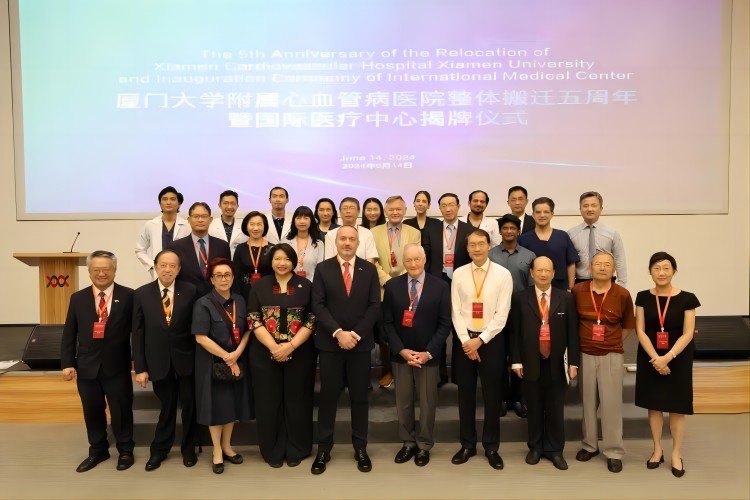
Gary Roubin, an internationally renowned cardiovascular expert, pioneer of interventional cardiology, inventor of the world's first coronary stent, and Honorary Citizen of Xiamen, first visited Xiamen in 2005, when XMCH named its catheterization laboratory after him. Over the years, he has closely followed XMCH's development and was invited to the inauguration ceremony this time, gaining a deeper understanding of the hospital.
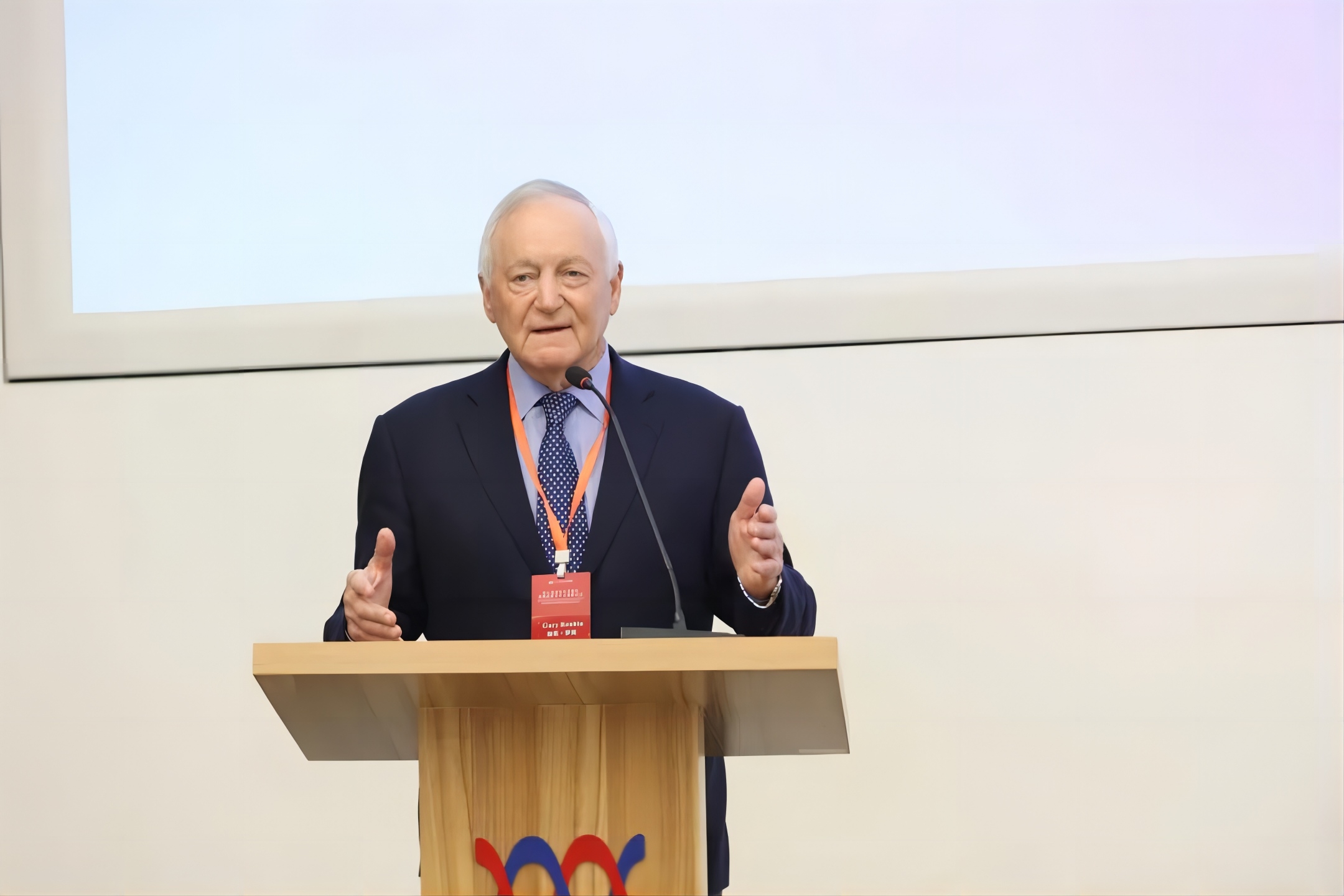
He stated, "I have visited cardiovascular centers worldwide, and the achievements XMCH has made in just over a decade are most impressive. This hospital has developed many innovative technologies and international collaborations, becoming a highly capable cardiovascular center of international standing. I believe XMCH is fully capable of making significant contributions to the international medical field."
Xiamen's Unique Advantages in Developing International Healthcare
International healthcare refers to foreign nationals obtaining special visas to visit a location for health check-ups, chronic disease treatments, or elective surgeries. Currently, some Chinese hospitals have international medical departments, primarily serving foreigners living and working in the local area long-term.
As a modern international city, Xiamen enjoys a pleasant climate and rich tourism resources, offering unique advantages for developing the international health tourism industry. During this year’s National People's Congress, Dr. Wang Yan, Director of XMCH, proposed a pilot project in Xiamen to develop the international health tourism industry and establish China's health tourism brand.
"In addition to the excellent natural environment, Xiamen has geographical and demographic advantages. Over 15.8 million overseas Chinese from Fujian are distributed across 188 countries and regions, and there are multiple direct flights to Europe and the Asia-Pacific region," said Wang Yan. In recent years, Xiamen has continuously optimized regional medical resource allocation and significantly improved overall medical standards, laying a solid foundation for developing the international health tourism industry.
It is reported that the international health tourism industry is a new, high-output, low-energy-consumption, and pollution-free industry. Its market capacity is expanding with the improvement of economic levels and the growing health demands of people worldwide, becoming one of the fastest-growing industries globally.
Developing the international health tourism industry is of great significance in promoting economic development, transforming economic development modes, boosting employment, and enhancing China's international medical competitiveness. The "Outline of the Strategy for Expanding Domestic Demand (2022-2035)" issued by the Central Committee of the Communist Party of China and the State Council in 2022 clearly proposed "focusing on increasing high-quality health maintenance, rehabilitation, and health tourism services," providing policy support for developing international medical services.
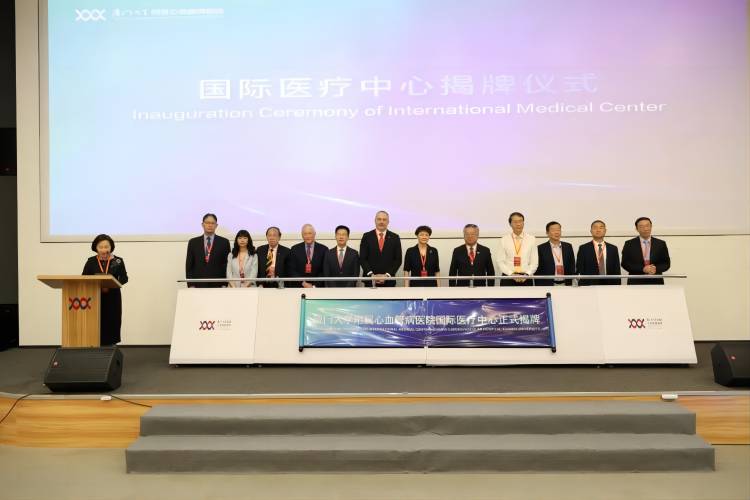
Creating a Model for China's International Medical Services
Mr. Deng, a 56-year-old Canadian-Chinese, has often experienced chest tightness and throat constriction in recent years, severely affecting his quality of life. Diagnosed in Canada, his coronary angiography revealed severe stenosis in three major coronary arteries, and doctors recommended open-heart bypass surgery. Fearful of this procedure, Mr. Deng was introduced to XMCH by relatives, where he underwent three successful minimally invasive interventional surgeries to open his heart vessels. He has recovered and returned to Canada.
"Not only Chinese people but also more and more people from Southeast Asia and even Europe and America are coming to our hospital for heart surgeries," said Song Juan, Director of the VIP Ward Department at XMCH.
As a Branch of National Clinical Research Center for Cardiovascular Diseases and a National Regional Medical Center for Cardiovascular Disease, XMCH has actively responded to the "Global Development Initiative" in recent years. It has continuously explored paths for internationalization and industrialization, established the BRICS Cardiovascular Health Innovation Center, launched the Heart Sapling Visiting Scholar Program, and engaged in efficient and pragmatic cooperation with international medical institutions and research institutes, as well as training young international cardiovascular physicians. It now has favorable conditions for providing international medical services.
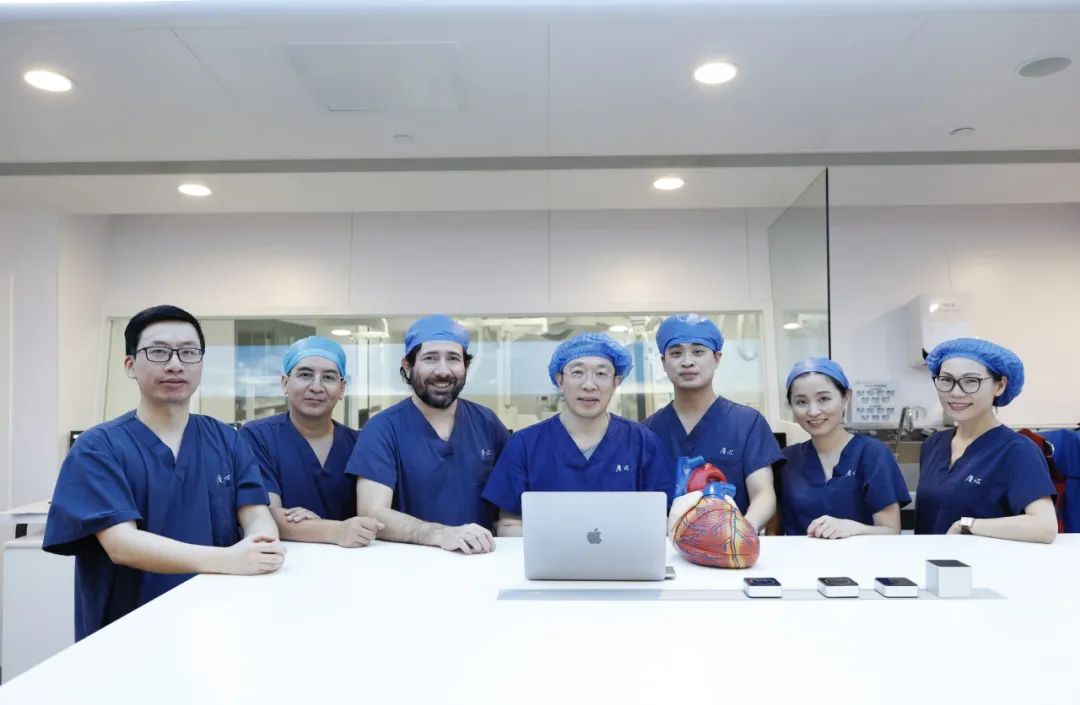
Last year, XMCH received more than 150 foreign guests from over 50 countries. Many expressed their desire to receive international medical services at XMCH, inspiring the hospital to establish the International Medical Center.
Dr. Wang Yan introduced that the second phase of XMCH's development began early this year, with international medical services being a key focus. He stated, "Next, we will visit countries with advanced international medical practices such as Singapore and Japan to further integrate international medical resources, innovate treatment models, connect with international medical insurance, and enhance international promotion. We aim to strengthen and expand our international medical services to become an industry benchmark."
Andrei Andreev, Consul General of Belarus in Shanghai, CHNG TZE Chia, Consul General of Singapore in Xiamen, Nilobol Pindee, Acting Consul General of Thailand in Xiamen, renowned international cardiovascular experts Lim Yean Leng and Ho Daivd Sai Wah, Professor of Management at Xiamen University William N.Brown, Executive Director of the Indian Chamber of Commerce and Industry Atul Dalakoti, and Executive Vicepresident of Mexican Chamber of Commerce in China Victor Cadena, among other international friends, attended the inauguration ceremony.

Professor Gary Roubin: Pioneer of Interventional Cardiology
This is my fourth visit to XMCH. The speed of XMCH's development is unbelievable, and it is impressive even by global standards. Whether in terms of professional technology, modern facilities, or patient management, XMCH has reached world-class levels. With the completion and operation of the second phase, I believe XMCH will continue to make significant strides.
 Professor Ho David Sai Wah: First Director of Xiamen Heart Center
Professor Ho David Sai Wah: First Director of Xiamen Heart Center
In just over a decade, XMCH has achieved remarkable success, with the complexity and number of interventional procedures reaching world-class levels. Standing here today at the forefront of cardiovascular medicine, I have witnessed the spectacular transformation of XMCH from its inception to becoming a leader in the field.
 Professor Lim Yean Leng: First Dean of School of Medicine, Xiamen University, One of the Founders of Xiamen Heart Center
Professor Lim Yean Leng: First Dean of School of Medicine, Xiamen University, One of the Founders of Xiamen Heart Center
Many years ago, when I first visited relatives outside Xiamen Island, I had to travel on narrow roads and walk a segment where there were no roads. This time, I returned home via the cross-sea bridge, reaching Xiang'an in no time. I am proud of the development of China and Xiamen over the years and proud that XMCH has become an international leader in cardiovascular medicine.

Professor William N. Brown: Professor at School of Management, Xiamen University
During my health check-up at XMCH, the professionalism and warm service of the medical staff left a deep impression on me. The development of XMCH is astonishing and has injected more "heart" energy into people's health.
A Precious Moment Captured in a Photograph
In 2005, the catheterization laboratory at XMCH was officially named after Professor Gary Roubin, the pioneer of interventional cardiology. Gary Roubin, Ho David Sai Wah, and Wang Yan gathered in the catheterization laboratory, and a photograph was taken to commemorate the precious moment. During the inauguration ceremony of the International Medical Center, the three renowned cardiovascular experts coincidentally mentioned this yellowed old photo, calling it a "reunion of three generations of interventional cardiologists."
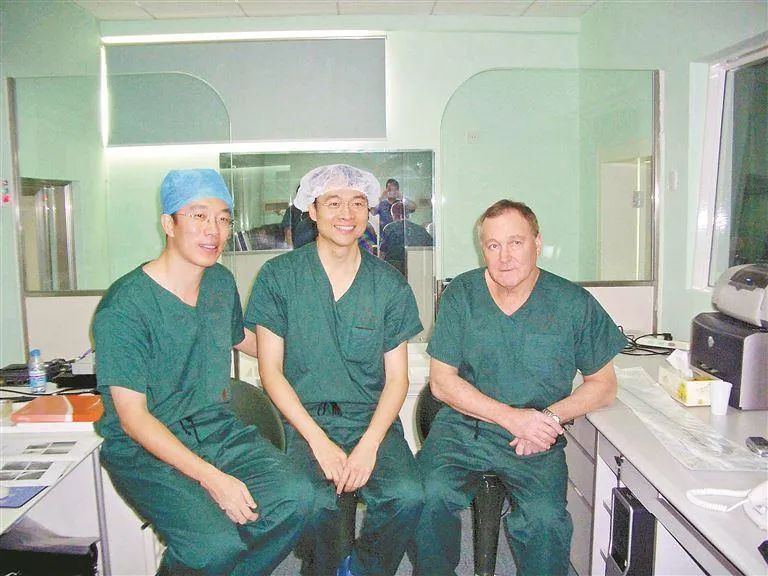
From right to left: Gary Roubin, Ho David Sai Wah and Wang Yan
In the early 1990s, Gary Roubin invented the first FDA-approved coronary stent. Ho David Sai Wah went to the United States to study under Gary Roubin and brought the stent implantation technique back to Hong Kong. Subsequently, major hospitals in mainland China sent key staff to Hong Kong to learn, and Wang Yan studied stent implantation under Ho Shihua, bringing the technology to Xiamen and leading XMCH to rapid development. From a local specialty nurtured by the Xiamen Municipal Government, XMCH has stepped onto a new path of international development.
share
Latest News
-
01 December,2025
Heart Saplings Blossom| Fellows from India and Indonesia Win Awards at International Academic Conferences with Cases from XMCH
-
03 November,2025
“Made-in-China” Robot Performs Cross-Continental Heart Intervention, Achieving a World First in Remote Operations
-
09 October,2025
Accelerating Technology Export | Xiamen experts conduct academic exchanges and demonstrate domestic IVL procedure in multiple hospitals in Pakistan

